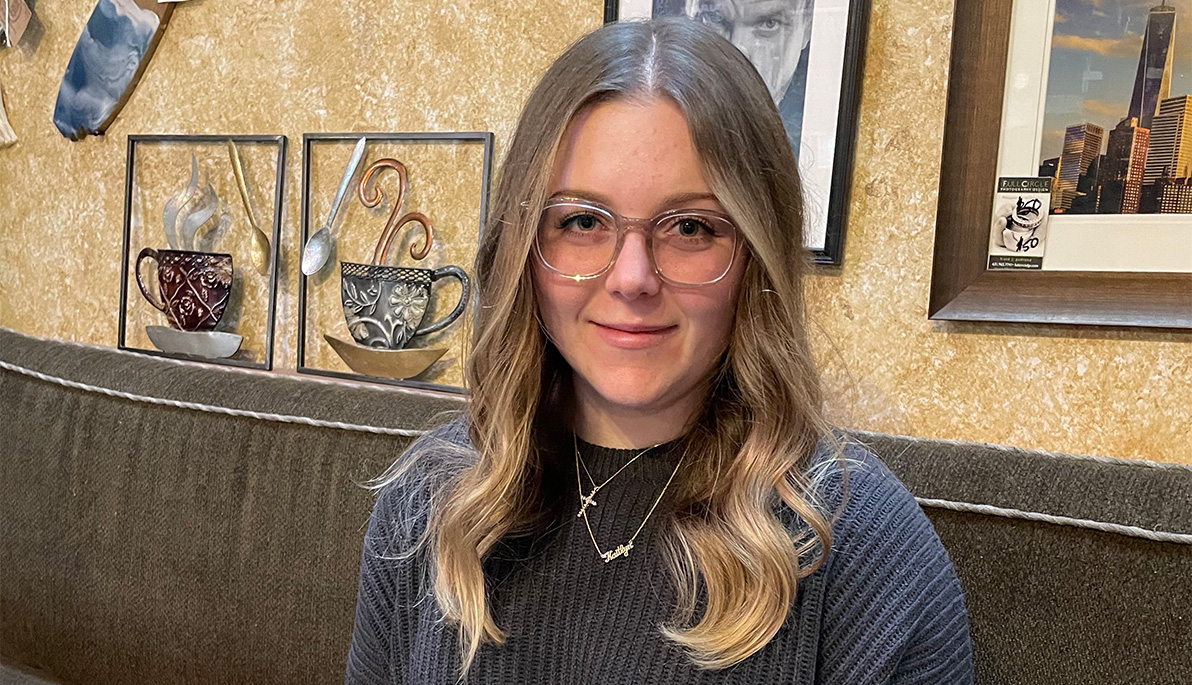
Student Profile: Kaitlyn Accardi

Major: B.S., Biology – Molecular Biology
Year Expected to Graduate: 2021
Campus: New York City
A Passion Sparks a Career
Kaitlyn Accardi discovered her passion for biology in high school. At the time, she was planning to pursue a career in teaching, but once she began learning more about biology and science, the next step was clear: she would pursue a college degree in biology. “Growing up, I actually wanted to be a teacher, but then I took biology in high school and fell in love with it,” she recalls. “Ever since then, I’ve dreamed of becoming a doctor.”
Accardi, a student in New York Tech’s Biology, B.S. program, with a concentration in molecular biology and a minor in medical humanities, has worked alongside Niharika Nath, Ph.D., professor of biological and chemical sciences, on research projects related to the detection of cervical cancer.
What led you to study biology at New York Tech?
I love the location of the New York City campus. The students on campus tours were extremely welcoming and friendly. I remember attending my student tour with my dad and thinking this is the college for me.
Can you talk about your studies and the research you are working on with Professor Nath?
We have worked on several research projects, including studies on the antibacterial effects of organosulfur compounds with anti-cancer potential. Our preliminary studies showed that our candidate sulfur compounds exhibited antibacterial activity, which could be considered in efforts to reduce bacterial infections. However, our overall goal is to study sulfur-containing compounds that have anti-cancer potential to potentially treat various cancers in the future.
[Another is] the computational image analysis of normal and dysplastic cells towards automated detection of cervical cancer. Cervical cancer is one of the most prevalent forms of cancer in women, and our goal is to create a mechanism for automated detection of cervical cancer by using image analysis to analyze the morphology of abnormal cells in a Pap smear. Image analysis can be useful in early detection of cervical cancer with its precision and swift results as an alternative to current methods used by cytopathologists, which include analyzing abnormal cells by microscopy.
Did the pandemic have any impact on your studies?
COVID-19 did not stop my research, and I have participated in multiple conferences in my junior and senior years. I attended the virtual Sigma Xi Symposium in May 2020 and co-authored the poster “Antibacterial effects of organosulfur compounds against gram-negative bacteria” that was presented by my teammate. I also virtually presented my poster “Antibacterial effects of organosulfur compounds that have anticancer potential” at the National Conference of Undergraduate Research in April 2021.
How has your experience at New York Tech prepared you for life after graduation?
New York Tech has amazing professors that are always looking for the best in their students and always willing to provide opportunities for growth. The campus is smaller than most schools, but I believe that having these close connections with the staff and professors will help me in my future endeavors.









